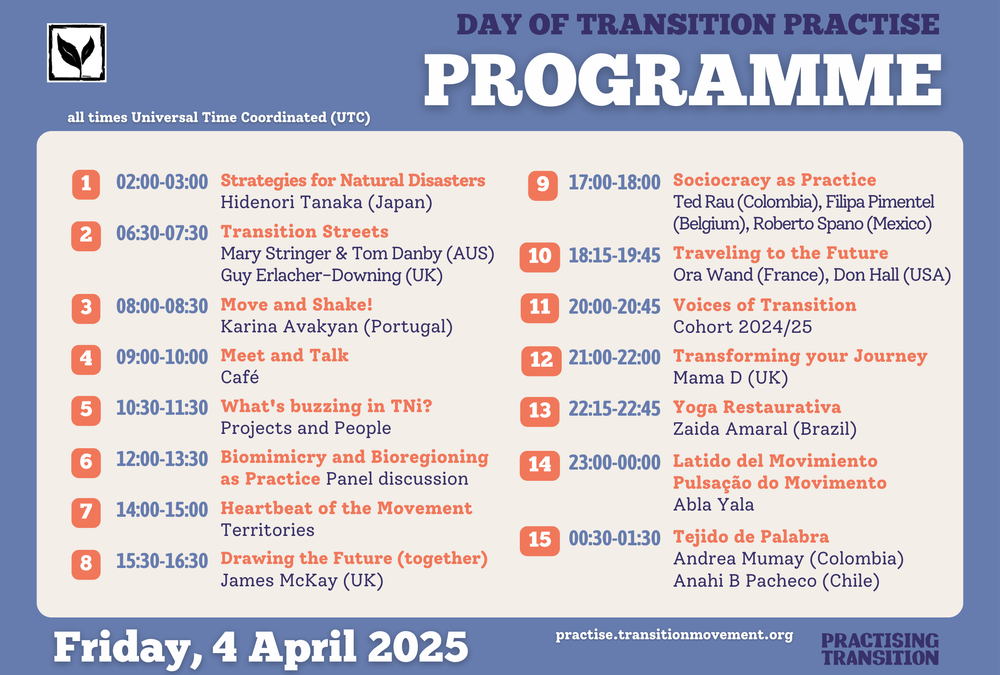Friday 4 April 2025 at 5.30pm
BIOS:
- Mary Stringer
Mary is a grandmother and retired community worker who worked with others in 2017 to set up Transition Australia as a national Hub to connect grassroots transition and like-minded groups throughout Australia. She continues in the role of Secretary and admin volunteer. Mary co-founded her local group, Transition Banyule (in Melbourne) in 2009. She is a trained facilitator in The Work That Reconnects and loves the way the Transition movement embraces this work as part of Inner Transition. She personally finds the insights and practices of The Work That Reconnects as crucial for mental well-being in the face of global crises. - Tom Danby
Tom joined in 2012 when a local group was established to build a food forest in inner North Melbourne. At the time he was a publisher of environmental science books for children. He is a member of both urban and rural “Transition style” sustainability groups and has contributed to local government projects. In 2019, he was part of the team that created an online version of “Transition Streets”. - Guy Erlacher-Downing
Guy got involved with Transition as a teenager in the food projects; Totnes Local Food Festival, and Grown in Totnes (milling local grain). Guy is now the Coordinator of Transition Town Totnes and lives off-grid in a permaculture cooperative ‘Landmatters’. This year marks 20 years of Transition Town Totnes, follow their website for news and events. TTT are raising funds from April 22nd-29th via the Big Give where any donation is doubled, any support is appreciated – links will be available on their social media.
About the Session:
Transition Streets is an effective, replicable and fun project where neighbors come together to implement practical actions to lower carbon footprints, conserve water, reduce waste, and strengthen our neighborhoods. Guided by a user-friendly handbook, you can join with a handful of your neighbors to read and discuss clear and easy actions, tips, and facts to increase your energy efficiency, cut down on waste, eat fresh and local, save money, and build a stronger community. Participants of Transition Streets have fixed drafts and leaks, started composting, installed rainwater catchment and greywater systems, swapped recipes and ideas, shared tools and skills, lowered their utility bills, and best of all built friendships.
Join us to see how you can transform your street into a vibrant, proactive, engaged and enjoyable space for you and your neighbours.
